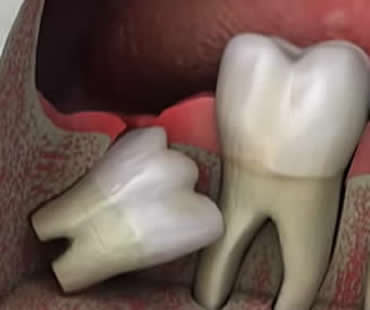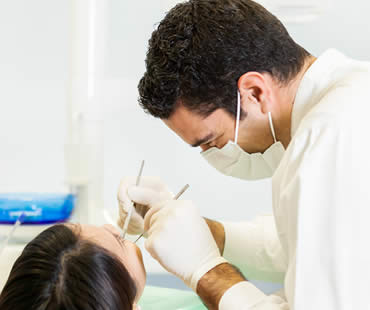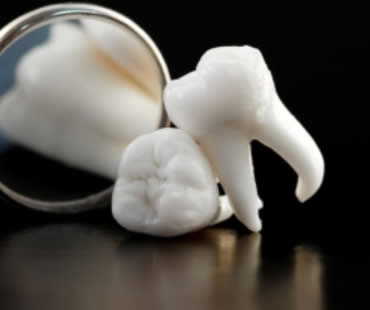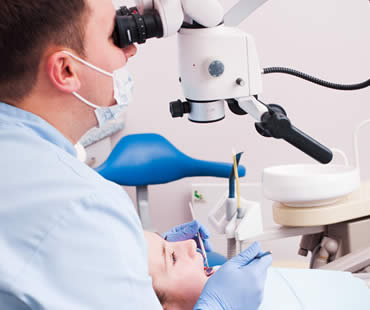
Also called third molars, wisdom teeth are the last set of teeth to erupt. Usually, people get their wisdom teeth in during their late teens and early 20s. Although some individuals have no trouble with their wisdom teeth, many people end up having these teeth removed because they may become impacted and create dental health issues. Learn more about wisdom teeth with this Q and A:
Do I need to have my wisdom teeth removed?
If your wisdom teeth aren’t causing problems, you can leave them alone. Typically, wisdom teeth are crooked or impacted, which can generate problems with the surrounding teeth. Also, wisdom teeth can be harder to keep clean, so the risk of decay on these teeth is higher.
When should I have these teeth taken out?
For optimal results, most dentists recommend wisdom teeth removal for patients when they are between 16 and 22 years old. The formation of the roots isn’t complete, so you have fewer complications.
Are there any risks?
As with any surgery, you can have issues arise, but the biggest concerns are nerve damage and dry sockets. Older patients have a greater chance of nerve damage because the root has more fully developed. Dry sockets occur when the post-surgery blood clots dislodge.
Does my age matter?
Some adults don’t experience any symptoms until they are in their 30s, 40s, or 50s. You can have these teeth extracted at any point, but when you get older, surgery is more difficult and the recovery takes longer. If you have trouble with your wisdom teeth, contact your dentist right away for a complete exam.
Fernandina Beach dental office for wisdom teeth – Amelia Dental Group

Wisdom teeth are the last adult teeth to erupt into the mouth, generally emerging between the ages of seventeen and twenty-one. They are the third set of molars and are in pairs: two each on the top and bottom arch of teeth. While some patients don’t have wisdom teeth, most do. Many of those who do have them don’t have enough room for those teeth to erupt fully, causing them to be wedged under the back of another tooth, impacted in the gum.
Impacted wisdom teeth are very difficult to clean, and can negatively affect the surrounding teeth. They are highly vulnerable to disease and decay and may lead to tooth pain and damage to adjacent teeth. For these and other reasons, a dentist may recommend that the teeth be extracted through oral surgery as soon as necessary to prevent any problems.
Extraction of wisdom teeth is typically an outpatient procedure done in an oral surgeon’s office. A healthy patient can proceed with a typical surgery, but if any infection is detected, the surgery can’t move forward until the infection is cleared up through the use of a full course of antibiotics. Once the surgery is moving forward, the surgeon’s team will administer some form of anesthesia to numb the area surrounding the tooth or to possibly sedate the patient through IV sedation dentistry.
After the anesthesia has fully taken effect, the surgeon makes an incision to open the gum and to remove any bone that is blocking the tooth from extraction. The tissue connecting the bone to the tooth will be separated and the tooth will be removed. In some cases, the surgeon will have to break the tooth into smaller pieces to make it easier to remove. After thoroughly cleaning the area and removing any remaining debris, the incision will be closed, stitched and packed with sterile cotton gauze to staunch any bleeding.
The surgeon will provide aftercare instructions. Patients should follow these instructions to the letter in order to ensure the best and fastest healing of the surgical site.
We look forward to seeing you in our Fernandina Beach dental office

Wisdom teeth are the third set of molars, and usually emerge in the late teens or early twenties. Standard dental practice is to remove wisdom teeth prior to them being fully formed when the roots have not yet had a chance to develop and fully root into the jaw. Younger patients usually have an easier recovery from surgery and many dentists believe early removal prevents future dental problems associated with wisdom teeth.
If your wisdom teeth were not removed as they emerged, there are some signs and symptoms that would indicate the need for extraction including:
- Wisdom teeth that are impacted, which means they have become trapped in the jawbone or gums.
- Wisdom teeth that are emerging at an awkward angle, causing pressure on adjacent teeth.
- Wisdom teeth that do not fit in your mouth, causing crowding of the surrounding teeth as well.
- Wisdom teeth that are suffering from decay or disease caused by the inability to keep them cleaned properly.
- Wisdom teeth that have developed fluid-filled cysts near the gumline.
- Wisdom teeth that are causing pain due to any of the above reasons.
The decision about whether or not to remove your wisdom teeth should be made in consultation with your dental professional. Your dentist or oral surgeon can assess the position and health of your wisdom teeth and make a recommendation for treatment.
If extraction is recommended, they may choose to extract one tooth or all four molars at once. Recovery from the outpatient procedure takes just a few days, and you will quickly be back to normal. Contact our dental office if you are experiencing any of these symptoms listed to determine if you should consider wisdom tooth removal to ensure your future good oral health.

Your family, general, or pediatric dentist or orthodontist may refer you to an oral and maxillofacial surgeon for some dental treatments that require oral surgery. An oral surgeon is a specialist who has graduated from an accredited dental school and also completed additional education and residency related to surgical procedures needed to treat various oral diseases and conditions. An oral surgeon is trained in treating the following conditions:
- Removal of diseased or impacted teeth
- Placement of dental implants
- Treatment of facial trauma involving gums, jaws, nasal cavities, cheekbones, eye sockets, and forehead
- Evaluation of pathologic conditions such as cysts and tumors of the mouth and face or acute infections of the oral cavity, salivary glands, neck, and jaws
- Treatment of facial pain including those caused by temporomandibular (TMJ) problems
- Cosmetic or reconstructive surgery to correct jaw, facial bone, and facial soft tissue problems
- Corrective jaw surgery
- Cleft lip and cleft palate repair
- Surgical treatment for sleep apnea
There are many different techniques that oral surgeons use to accomplish your treatment goals. The choice of techniques may vary between surgeons and should be discussed between you and your surgeon prior to the procedure.
Many oral surgery procedures can be completed in an outpatient setting. Often you are only in the office for a few hours and can return to your regular routine in a matter of days. A good oral surgeon will be able to perform these procedures with little chance of complications, and will be able to provide you with the information you need to understand the recovery process. Your oral surgeon will often collaborate with other specialists, such as an orthodontist or cosmetic dentist, to achieve your ultimate treatment goals.
If you live in the Fernandina Beach area contact us today





